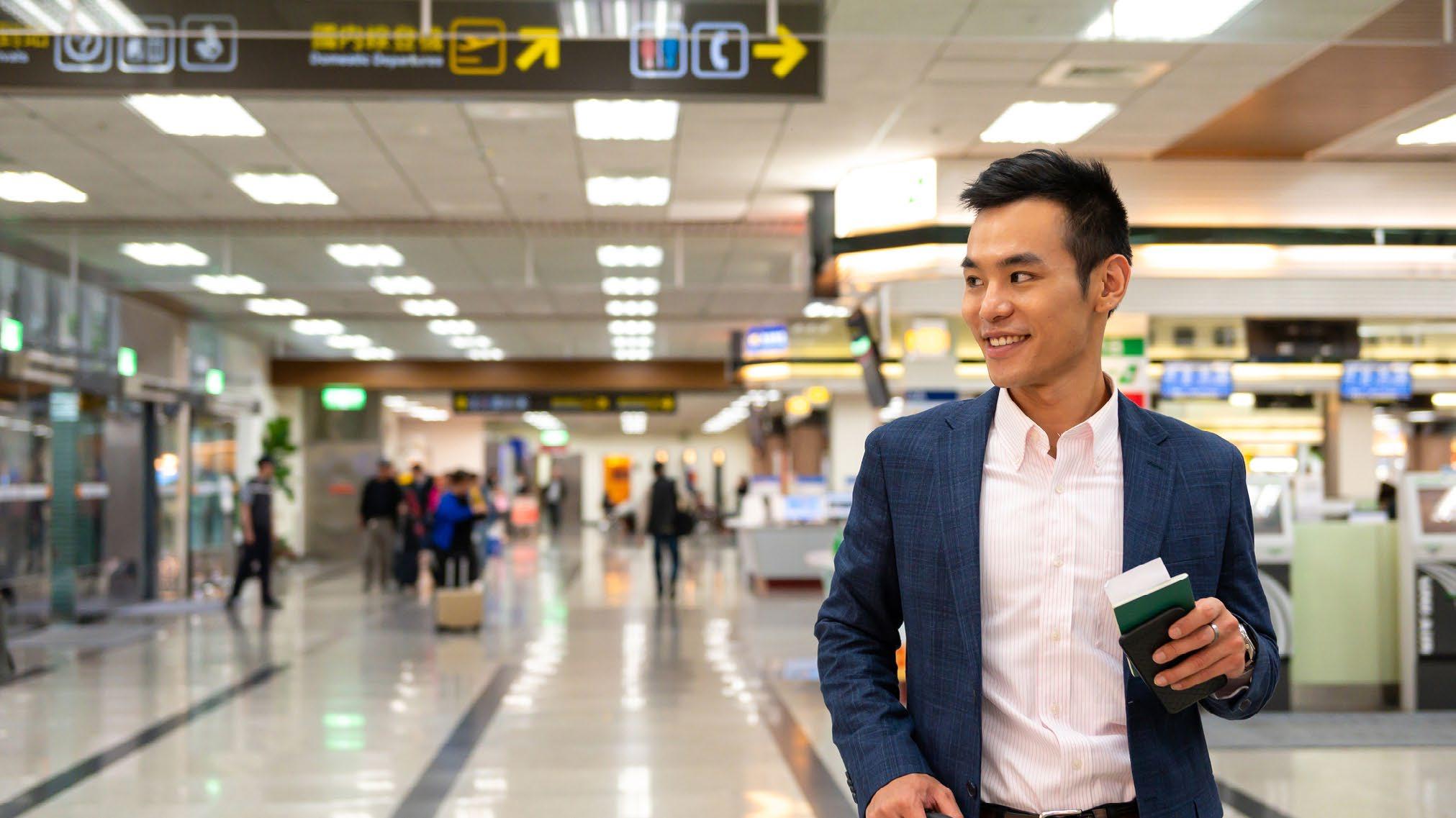
3 minute read
INDUSTRY NEWS
LEADING BY EXAMPLE – ASIA-PACIFIC’S 2020 ASQ WINNERS
It might have been easy for the region’s airports to let their usual high customer service standards drop in 2020 as the coronavirus pandemic significantly reduced their passenger numbers, but ACI’s Airport Service Quality (ASQ) awards prove otherwise, with 30 winning Best Airport by Size accolades and nine picking up new Best Hygiene Measures by Region honours.
Advertisement
Winners of the Best Airport by Size in the Asia-Pacific region included China’s Haikou Meilan (HAK) and Shenyang Taoxian (SHE) airports which shared top prize with India’s Rajiv Gandhi International Airport (HYD) in the 15-25mppa category.
Beijing Daxing (PKX) and Bengaluru-Kempegowda (BLR) which finished joint top in the 25-40mppa category, and a magnificent seven that couldn’t be separated for top spot in the Over 40mppa section – Beijing Capital (PEK), Mumbai- Chhtrapati Shivaji Maharaj (BOM), Guangzhou Baiyun (CAN), Delhi-Indira Gandhi (DEL), Shanghai Pudong (PVG), Shenzhen Bao’an (SZX) and Singapore Changi (SIN).
In the Middle East, Jordan’s Queen Alia International Airport (AMM) retained its title in the 5-15mppa category for the third year running and Abu Dhabi International Airport (AUH) triumphed in the category for airports handling 15-25mppa.
To take into account the impact of the COVID-19 pandemic and the airport industry’s response to it, the 2020 ASQ passenger survey included a number of hygiene-related questions to allow for the introduction of a new award for Best Hygiene Measures by Region.
And the inaugural list of 33 global winners of the award included seven Asia-Pacific gateways – Beijing Daxing (PKX), Chandigarh (IXC), Depati Amir (PGK), Husein Sastranegara (BDO), Netaji Subhash Chandra Bose (CCU), Pune (PNQ) and Soekarno-Hatta (CGK) – and two from the Middle East, Saudi Arabia’s King Khaled International Airport (RUH) and Salalah (SLL) in Oman.
ACI believes that the hygiene awards provide airports with a reliable method of gauging passengers’ response to the new health measures and recognises airports’ success in responding to the intense focus on hygiene.
“Even as our members battled the debilitating impact of the virus throughout 2020, airports in different size categories in Asia-Pacific and the Middle East maintained their focus on the customer and their evolving needs,” said ACI Asia-Pacific’s director general, Stefano Baronci.
“We congratulate our airport members for this high accolade which sets the stage for a recovery that puts the traveller first.”

ADANI GROUP EXPANDING FAST IN AVIATION SECTOR
Hot on the heels of taking over the management of India’s Ahmedabad, Mangaluru and Lucknow airports and agreement to operate and develop Trivandrum, Guwahati and Jaipur from July 2021, the Adani Group has paid $312 million for a 23.5% stake in MIAL, operator of Mumbai-Chhatrapati Shivaji Maharaj International Airport.
Adani acquired its stake by buying out ACSA and Bidvest’s shares in MIAL and is shortly expected to take a controlling stake in the company by completing its already agreed purchase of GVK Group’s entire 50.5% interest in the gateway.
Under the proposed deal, the Adani Group will take over $462.9 million of debt owed by GVK Airport Developers, which is the holding company of MIAL.
In addition to operating the gateway, MIAL has a 74% stake in the consortium awarded a 30 year concession to operate the currently under construction Navi Mumbai International Airport.

HONG KONG INTERNATIONAL AIRPORT TRIALS DIGITAL HEATH PASSES
In a hugely pioneering initiative, Hong Kong International Airport (HKG) has successfully conducted the trial of digital health passes on a flight between Hong Kong and Los Angeles.
In the trial, Cathay Pacific air crew role-played as passengers and took the COVID-19 test at HKG’s testing centre, with the test results sent to their mobile phones in the form of digital health pass which were presented to airline staff for check-in.
Upon arrival at LAX, the role-playing passengers presented their digital health pass to local staff for validation and entered Los Angeles successfully.
Vivian Cheung, Airport Authority Hong Kong’s executive director of airport operations, said: “As COVID-19 tests and vaccinations are poised to become new essentials for air travellers in the future, a digital solution is required to effectively integrate this new requirement into the existing digitalised travel process, from laboratory to check-in and to landing.”
HKG says that it has been collaborating with major hub airports in the world to facilitate the adoption of digital solutions to tackle challenges such as trustworthiness of paper reports, diversified and dynamic entry requirements across countries and regions, long queues for passengers for document check, and labour intensive checking duties for airline staff.










